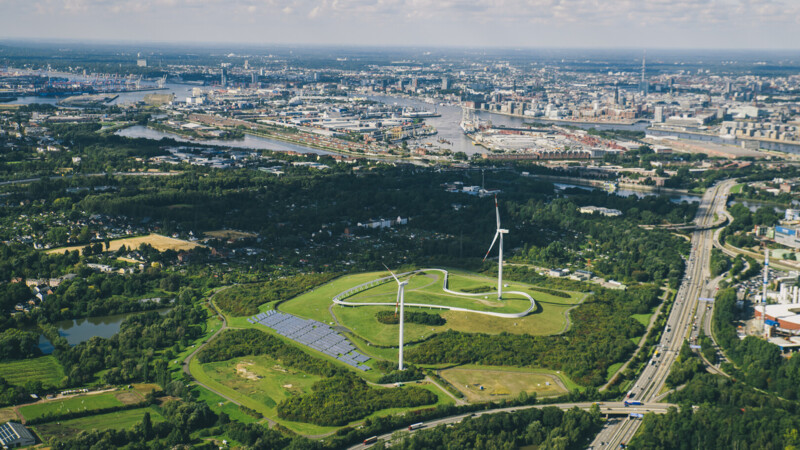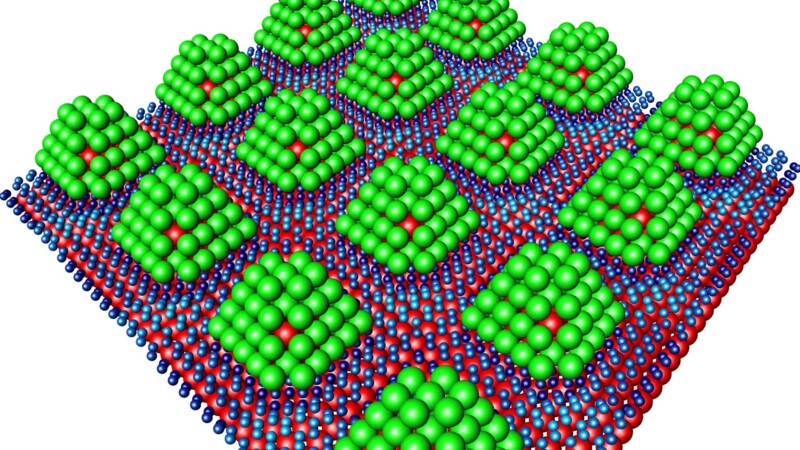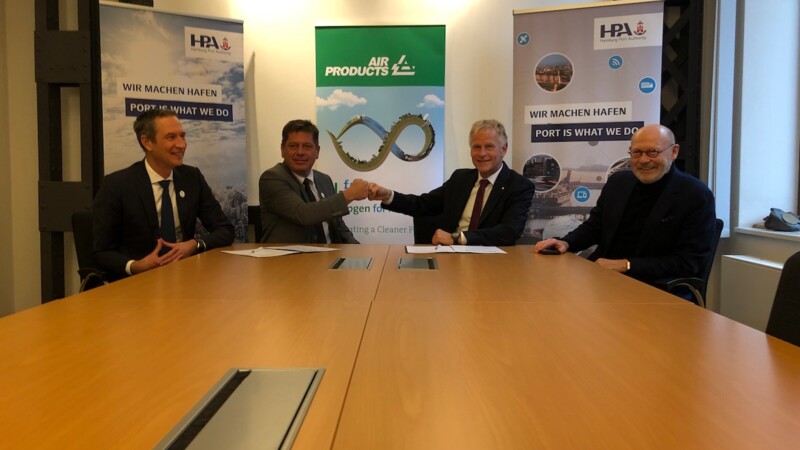The strategy would consolidate Hamburg's position as a pioneer of hydrogen. To this end, the city has stepped up its efforts to become a European hydrogen import hub and a model for an integrated energy value chain.
The Ministry for Economics and Innovation in Hamburg presented Friday (March 4, 2022) its import strategy for environment-friendly hydrogen including an action plan to pave the way for the large-scale import of hydrogen to Germany. The strategy consolidates Hamburg's position as a hydrogen pioneer. A strong increase in demand for climate-neutral green hydrogen is needed to meet climate targets and cannot be met by local production. Given the ambitious expansion targets for an electrolysis capacity of about 550 MW by 2030, all of Germany will have to import green hydrogen.
Hamburg - hydrogen import hub for hydrogen for Germany and Europe
International co-operation crucial
International cooperation is crucial to connect Germany with exporting countries mainly via the Port of Hamburg. The city has already sealed a memorandum of understanding with Scotland and is seeking further co-operation with Australia, Chile, Denmark, Norway and the United Arab Emirates (UAE). However, more steps are needed to bolster industrial decarbonisation using hydrogen.
Commenting on the strategy, Michael Westhagemann, Minister for Economics, said: "I am pleased that the import strategy for green hydrogen is another important puzzle piece for Hamburg's future as a business and port location. Hamburg wants to establish itself as a reliable partner for export countries, and the strategy sets the right foundation for this.”

The strategy includes nine action points:
1. North German (Regional) Needs Assessment
The potential additional needs of northern Germany as an entire region must be considered. The North German Needs Assessment is the basis for the further planning of green hydrogen imports and demand and should be completed by 2023.
2. European market ramp-up
The implementation of an equivalent funding instrument for the inner-European area will also be considered in addition to the support of the globally active H2Global Foundation.
3. Subsidy for green hydrogen projects
Government subsidies will be required during the market ramp-up of a green hydrogen sector. Hamburg offers proactive subsidy management to identify funding opportunities and to support their use.
4. International co-operations
Green hydrogen memoranda of understanding are to be concluded with at least six more countries or regions by 2025 to open up production opportunities for hydrogen outside of Germany and secure imports.
5. Rail-based imports
Hydrogen can be imported by ship and pipeline and via the existing rail network. Models of rail-based hydrogen imports are being developed and will be assessed for their economic viability by 2023.
6. HyPerLink III Pipeline Project
Hamburg and Schleswig-Holstein are preparing for joint consultations with Denmark to participate in the import and distribution of green hydrogen and to connect both federal states with the Danish hydrogen pipeline network.
7. Import infrastructure in Port of Hamburg
The aim is the development of a flexible import terminal infrastructure in the Port of Hamburg on a large scale.
8. Networking of maritime stakeholder
The maritime industry offers far-reaching decarbonisation potential. The strong maritime networks in Hamburg will be involved to initiate concrete projects like the development of new vessels or technical solutions for import terminals.
9. Certification of green hydrogen
The focus is on the organisation of exchange formats with importing companies, the German government and the EU, exporting countries and others. (Although some of these measures are already well underway, others are still in the planning phase.)
German expertise for north European hub
The importance of advancing sustainable forms of energy continues to grow, particularly against the backdrop of current geopolitical developments, Westhagemann stressed. Northern Germany is known as a trailblazer of wind power and will now put this expertise towards setting up a green hydrogen value chain. The EU has selected eight projects from the Hamburg Metropolitan Region as part of the "Important Projects of Common European Interest on Hydrogen Technologies and Systems" (IPCEI Hydrogen).
Port of Hamburg as heart of northern hydrogen network
Germany is expecting an import ratio of green hydrogen from 40 to 70 per cent in 2030. For this reason, Hamburg will adapt and expand its import infrastructure. The plans foresee further expansion of the infrastructure by land and sea and the construction of dedicated onshore pipelines. The measures aim to support the decarbonisation of local industry to cover parts of the national and European demand. Westhagemann noted: "We are well equipped to handle future hydrogen requirements on-site and beyond by using Hamburg as a hub for imports. In this way, we also want to promote the local hydrogen economy, secure jobs in existing industries and generate new value-added potential in the region."
bs/sb/pb
Sources and further information
More
Similar articles

Wind Energy Hamburg 2022 banking on green hydrogen


